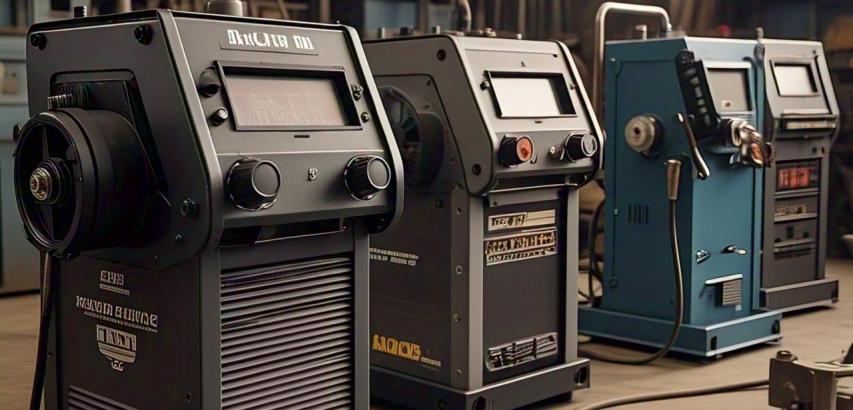Pipe welding machines are specialized equipment designed for joining sections of pipe together. This task is distinct from welding flat plates due to the circular joint geometry, need for consistent penetration around the circumference, and often demanding application requirements (high pressure, corrosive fluids, extreme temperatures).
Key Characteristics & Types:
Welding Process Compatibility: Machines are often defined by the welding process they facilitate:
Shielded Metal Arc Welding (SMAW / "Stick"): Common for field work and larger diameters. Machines are robust power sources (often diesel generators for remote sites).
Gas Tungsten Arc Welding (GTAW / "TIG"): Preferred for high-quality root passes (especially on stainless steel, chrome alloys) and critical thin-wall pipes. Requires precise control.
Gas Metal Arc Welding (GMAW / "MIG"/"MAG"): Used for higher deposition rates on fill and cap passes, often in shop environments. Requires wire feeders and gas supply.
Flux-Cored Arc Welding (FCAW): Popular for structural pipe and thicker walls, offering high deposition with or without external shielding gas. Often used with portable wire feeders.
Submerged Arc Welding (SAW): Used for high-deposition welding of large-diameter, thick-wall pipes, typically in a fixed position or with rotating pipe (rolls).
Orbital Welding Machines: A highly specialized subset (usually GTAW, sometimes GMAW). These automatically rotate the welding arc around the stationary pipe joint using a motorized weld head. Controlled by a programmer/power source, they deliver extreme precision and repeatability, essential for industries like semiconductor, pharmaceutical, food & beverage, and high-pressure steam lines.
Portability & Setting:
Portable/Flexible: Engine-driven welders (diesel/gasoline) for stick, TIG, or wire feed processes used in pipeline construction, field repairs, and plant maintenance.
Shop-Based Stationary: Larger transformer-rectifier or inverter power sources, often multi-process (e.g., Stick/TIG/MIG), used in fabrication shops with pipe-rotating positioners (rolls).
Orbital Systems: Typically consist of a programmable power source/controller and dedicated weld heads clamped onto the pipe. Can be used both in shops and carefully controlled field environments.
Critical Features for Pipe Welding:
Arc Stability: Essential for consistent penetration and bead appearance around the entire circumference.
Amperage/Voltage Control: Precise settings are crucial, especially for root passes and thin materials. Hot Start, Arc Force (Dig), and Crater Fill features are valuable.
Duty Cycle: Must be sufficient for the long, continuous welds often required on pipes.
Output Control: Smooth adjustment (often via remote pendants for orbital or positioner use).
Pipe Rotation Compatibility: Ability to interface with or control pipe turning rolls/positioners for consistent travel speed.
Programmability (Crucial for Orbital): Ability to store and execute complex weld schedules with multiple segments (amperage, voltage, travel speed, oscillation, gas pre/post flow) tailored for different positions (5G, 6G), materials, and thicknesses.
Why Specialized Machines Matter:
Quality & Consistency: Ensures uniform weld penetration and strength around the entire joint, critical for structural integrity and leak prevention.
Efficiency: Automated or semi-automated processes (like orbital or using positioners with MIG/FCAW) significantly increase welding speed compared to manual welding in fixed positions.
Repeatability: Especially orbital machines produce near-identical welds every time, vital for regulated industries.
Accessibility: Allows welding in difficult positions (like overhead in a 6G weld) consistently.
Reduced Skill Dependency: Automation (orbital, positioners) minimizes the impact of welder fatigue or variation, though skilled operators/programmers remain essential.
Applications:
Oil & Gas Pipelines (transmission, gathering)
Refineries and Chemical Plants
Power Generation (fossil, nuclear, hydro)
Shipbuilding
Water & Wastewater Treatment
HVAC (large systems)
Pharmaceutical & Food Processing
Semiconductor Manufacturing
Structural and Architectural Steel
In essence, pipe welding machines provide the controlled power, precision, and often automation necessary to create the high-integrity, circular welds demanded by diverse and critical piping systems across numerous industries. The choice of machine depends heavily on the process, material, pipe size, wall thickness, quality requirements, and work environment.
 |  |  |
